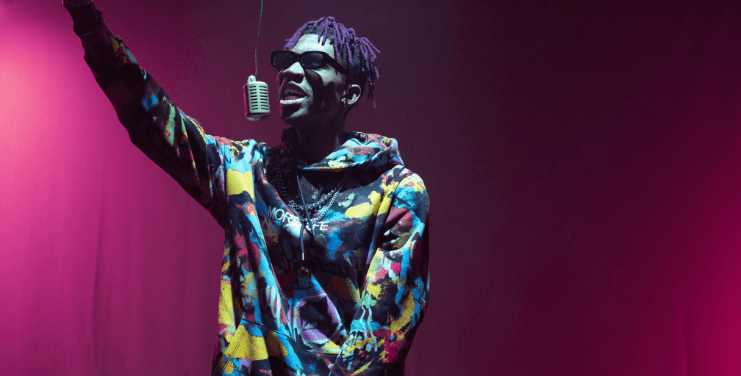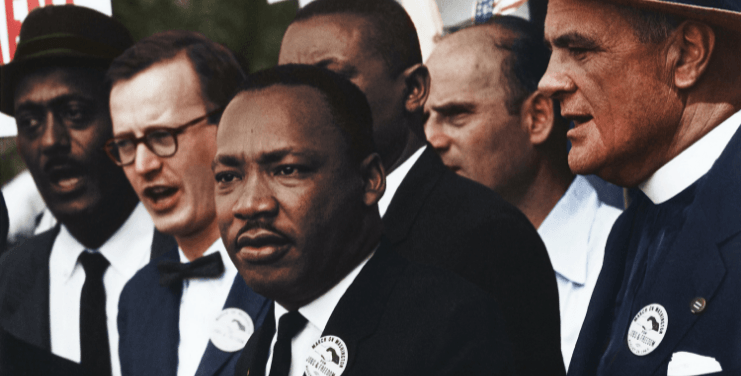Key Insights
- The era of ultra-profitable record labels is waning, according to Hip Hop artists, who are increasingly setting the terms of how they make money.
- Mainstream stars are starting to emerge in the crypto-rap world.
- But the longevity of this new normal is threatened by fundamental questions.
Kane Mayfield, New York based rapper, has a lot to say about the music industry, little of which is positive. His biggest critique is around the path to success in music, which can involve hours of unpaid work creating videos and albums – only to be streamed for cents.
“Your album isn’t for sale. The album is for stream. On a platform that pays you $.0033 cents per stream. Let’s just say, hypothetically, you knock the cover off the ball and you get 30,000 streams. You just made $99.”
Like many of his contemporaries who weren’t fortunate enough to be plucked out of the rabble by the corporate-music claw crane, Mayfield speaks bitterly about his time counting streams and views. “This plantation is fake. You’re not a slave, you’re a n**** choosing to work for free.”
He’s not alone. Exploitative record business relationships have long shackled artists. But Mayfeild and other musicians think there is a historic opportunity in the crypto world, specifically NFTs [non-fungible tokens], to upend an unfair system. The enthusiasm propelling that historic opportunity has culminated in a major NFT event in New York this month.
Unless one is plugged into the NFT world and follows the right Twitter accounts with “eth” in their username, it was easy to miss NFT.NYC — a four day convention for evangelicals to enthuse about ‘the possibilities’. In-between the relentless industry promotion there is star quality shining through from crypto-artists who are leveraging this medium and the momentum. Latashá Alcindor is one of them.
Alcindor, who bills herself as the blockchain’s first female rapper, has quickly become a serious name in the NFT world. There are shaky smartphone videos of her at NFT NYC this month performing at hotels.One performance was shut down by a Public Hotel organizer because it was “too aggressive” Alcindor’s partner told The Plug in a sobering throwback to what Black artists must continually deal with.
Her star has undoubtedly risen in the last few months, particularly since she has sold music for upwards of $19k, which is a long way from $.0033 a stream. It’s not hard to see why artists are excited.
Alcindor says she was burned by the streaming and label game too.
“I was putting in countless hours into visuals, countless hours into music…it just felt imbalanced. I felt this imbalance [between] my energy and the money they were offering.” NFTs offered her a way out, she explained to The Plug. “Something that I created five years ago, I posted on Zora [an NFT marketplace], and in three minutes I made about $1,000. That let me see that what [record labels] were telling me this whole time was pure bullshit.”
Celebrities are jumping on the bandwagon as new opportunities arise in the metaverse. Method Man tweeted asking who is going to NFT NYC. Lesser known rappers like Spottie WiFi performed at Decentraland’s Metaverse Festival, an online concert that took place between the 21st and 24th October. This wasn’t just a small event, the four day concert had major acts like Deadmau5 and Paris Hilton.
An eclectic mix of personalities perhaps, but recognizable names nonetheless that move the NFT and crypto world out of the shadows and into the mainstream. Spottie Wifi’s own story is similar to Mayfield and Alcindor’s, after a nine-year hiatus following an album launch that didn’t make the waves he expected, WiFi found success in the crypto world.
Streaming has been a false dawn
The old guard isn’t the only thing being upended, but also the traditional concept of an independent artist. While the record label route is like a golden ticket, an all or nothing business model, the thing that replaced it — direct-to-consumer streaming — has been a false dawn.
Pay from streaming is low unless artists hit stream numbers in the millions and those that do likely have built an audience outside of major platforms like Spotify and Apple Music. There isn’t much independence with $99 in an artist’s bank account. But if they sell a single for $1000? That is true freedom artists argue, their time has been properly compensated.
Professor M.K. Asante, author of Buck and It’s Bigger Than Hip Hop, is one of those monied fans buying digital works because of a personal interest over its investment value. He purchased a Nipsey Hussle NFT for an amount he didn’t want to disclose to The Plug. Asante’s excitement at the prospect of NFTs comes from a belief that they’re a way out of raptorial record deals, which have distorted the authenticity of the culture in recent decades.
“I’m against 360 deals, and I’m against trapping artists and deals that are really predatory,” he explained.
The pursuit of millions isn’t always the goal. Mayfield argues that making a good, regular wage is true independence.
“If I can live like a doctor, which is only $170,000 a year, it’s not crazy money, but if I can live like a doctor and make my art, I can be happy,” he said. It’s almost like NFTs have created a new financial category in music. A new middle earner that is often associated with a desk job, a pension and the contentment of suburbia.
It might not all be sunlit uplands for Hip Hop and NFTs, though. Artists say that their buyers believe that they’re purchasing an investment. This minted music is something that will greatly increase in value should the artist become wildly successful in the future.
Mayfield likened it to owning a rare tape of one of Chris Rock’s first comedy sets. But what happens if that dream isn’t realized? If the artist continues to make good music but never hits those heights. Will investors continue to snap up their work for $1000, or $19,000? Or will that revenue stream disappear as those buyers chase the Next Big Thing?
These are boom times. Scrooge McDuck swimming in coins times. NFT Hip Hop is nascent enough to not worry about that dark shadow on the horizon, but it is there. The market may refine and investors may become more discerning. Or fans of particular artists may well continue to pay high sums for albums, singles and memorabilia because they like it and expect no future return. Only time will tell.
The second half of 2021 has been transformative for Hip Hop and for creators. It would be easy to buy into the hype and proclaim NFTs as the financial savior of the culture, but making grand predictions in the crypto world is a fast track to becoming a meme.
Questions about money sources, whether or not the pie will be equally shared — or even accessible — among all artists and how long investors stick around can’t be ignored. Spotify was warmly welcomed by record labels when it first landed on the scene, while NFTs have been warmly welcomed by the actual artists. Maybe that’s the best indicator of where this Hip Hop- NFT collaboration will end.








